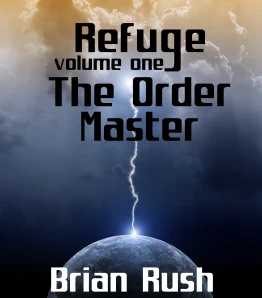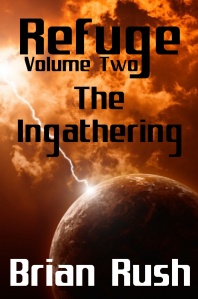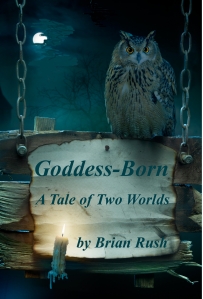 One of the pithiest statements to come out of any religion is “Atman = Braham,” a Hindu idea which states that the individual soul (Atman) is the same as the universal consciousness (Brahman). In one statement, this gives us the two entities which are the subject matter of spirituality: consciousness and the cosmos. The soul and God. I and Thou. That which experiences, and that which is experienced. These are the two poles of reality, between which everything happens that happens.
One of the pithiest statements to come out of any religion is “Atman = Braham,” a Hindu idea which states that the individual soul (Atman) is the same as the universal consciousness (Brahman). In one statement, this gives us the two entities which are the subject matter of spirituality: consciousness and the cosmos. The soul and God. I and Thou. That which experiences, and that which is experienced. These are the two poles of reality, between which everything happens that happens.
A related concept that has helped me to understand what consciousness is and why it cannot be approached as a scientific problem in the usual way is the difference between first person and third person as perspectives. A process in the world or in the imagination can be described in either of these ways (or sometimes in the second person). For example, an emotion in my mind can be described in the third person, as a state or certain activities in my brain, or in terms of my behavior (laughter, tears, etc.). It can also be described in the first person. I felt sad. I felt happy.
An emotion is a conscious process in that the person feeling it is aware of it, but it isn’t consciousness. Neither is a thought or an imagining or a sensation. These are the contents of consciousness: that which is experienced. Consciousness is that which experiences, and it may not be a “thing” as such, but a perspective on all things: specifically, the first-person perspective. Consciousness is subjective experience in the first person.
Epistemic and Metaphysical Primacy
In philosophy, epistemology is the study of how we know what we know. Arguably, it’s the most basic of all philosophical schools, because how we know ultimately determines what we can say about what is. Metaphysics is the philosophical study of ultimate reality: what the nature of the world and ourselves is.
There’s a conflict or tension between the two when it comes to consciousness and the first-person versus the third-person world. Epistemically, the first person is primary. Everything we know, we know because we experience the world subjectively in the first person. Our concept of objective reality, which is to say, of reality in the third person, is built by reasoning inductively from multiple subjective first-person perceptions. But we tend instinctively and as a practical matter to regard this constructed third-person world as “real.” Certainly it rewards us for treating it seriously, and its regularities as independent of what we think, want, or hope.
Materialism is a philosophical position that regards the objective world in the third person as metaphysically primary even though it is epistemically derivative and secondary. Taken to its logical conclusion, this would imply that consciousness — subjective experience in the first person — can be explained in terms of some process observed in the third person.
The problem there is that we cannot observe consciousness in the third person. We can only experience it in the first person. We assume its existence in other people (because otherwise we become antisocial and a little crazy), but this assumption is reasonable only because we spend our whole lives in the first person and project onto beings similar to ourselves in some ways this primary, fundamental characteristic of experiencing the world in the first person just as we do ourselves. (Or as I do, and as I assume you do, because I don’t want to become antisocial and a little crazy.) In the third person world, we see no sign of consciousness and wouldn’t even know what to look for as such a sign.
All of the causation that we observe in the objective third-person world is third-person to third-person. That is to say, we observe a process in the third person, and it produces some effect that is also observed in the third person. Getting from that to a first-person perspective is logically nonsensical. Not only can no evidence be shown for such a process, but it isn’t even possible to coherently describe it. This is true of nothing else in the world whatsoever. Even with a lack of any good information, our primitive ancestors were able to come up with some kind of coherent (even if often factually wrong) explanation for the third-person phenomena around them. Explaining sunrise and sunset as the God Apollo driving his fiery chariot across the heavens is quite wrong in terms of facts, but it’s coherent and makes sense, and the same is true of the more involved and complex and data-rich Ptolemaic cosmology, or that of Copernicus which was almost right. The ancients didn’t know why the sun rose and set, but they were still able to come up with a coherent idea. There is no similarly coherent idea that allows us to travel logically from the third to the first person.
The Materialist Dilemma
This puts materialism in a difficult position. It’s a tenable philosophical position as long as we stay a reasonable distance from consciousness, the epistemic center. While we’re studying nonliving physical and chemical processes, it presents no difficulties at all (that we can see — although in fact, these must also be incomplete). When we move to studying life, we begin to encounter greater uncertainty precisely because many living things are conscious, or we assume so, but even so all of the observable processes of life in the third person can be accounted for without leaving the bounds of materialism. The only problem is that life has something about it that isn’t observable in the third person: consciousness. As long as we forget about consciousness and concentrate on other things, measurable and observable things, we’re fine, although even then, there’s a nagging sense that we’re missing something important. And indeed we are.
Move into the arena of psychology and the materialist dilemma becomes more acute and obvious. Here, we are very close to consciousness itself, and the failure to come to grips with that subject is hard to ignore. Psychology does present plenty of questions that are strictly third-person and can be approached from a materialist perspective, so it’s not as if psychologists have no puzzles to occupy them, but it’s highly counterintuitive to suppose that the whole of the human mind can be explained in terms of behavior and neurological processes, when these leave unexplained the very thing that most of us think of when we hear the word “mind”: conscious experience.
In the end, we are forced to conclude that materialism, however useful it may be for many practical purposes, is incorrect. The material world, which is epistemically secondary, is metaphysically secondary as well. It does not exist independent of consciousness. It is, in fact, an interaction between consciousness and the mysterious, unknowable world-in-itself. Conscious experience is real. Everything else is a construct of the mind that may help us to understand the regularities in what we experience, but is not, itself, reality.
The Problem and the Solution
The problem is that consciousness itself, the epistemic core of our world, that which experiences, cannot be observed in the third person. It is experience in the first person, and that means it can be understood only in the first person. It’s impossible to understand consciousness from an attitude of objective detachment, such as is appropriate for science. You can’t stand back and look at consciousness. You must plunge in and be it. The only approach that works is immersive, not detached.
On the other hand, a form of detachment does allow consciousness to be separated from all of the materials we are conscious of, and with which we tend to (falsely) identify: thoughts, feelings, sensation, imagination, memory, personality — all of the psychic planetary bodies that orbit consciousness closely and confuse us as to who and what we really are. Doing this is a spiritual technique, a meditative technique. And that is why I say that consciousness is half of the subject matter of spirituality.
The other half will be the subject of next weeks blog entry.
Image credit: kostax / 123RF Stock Photo








